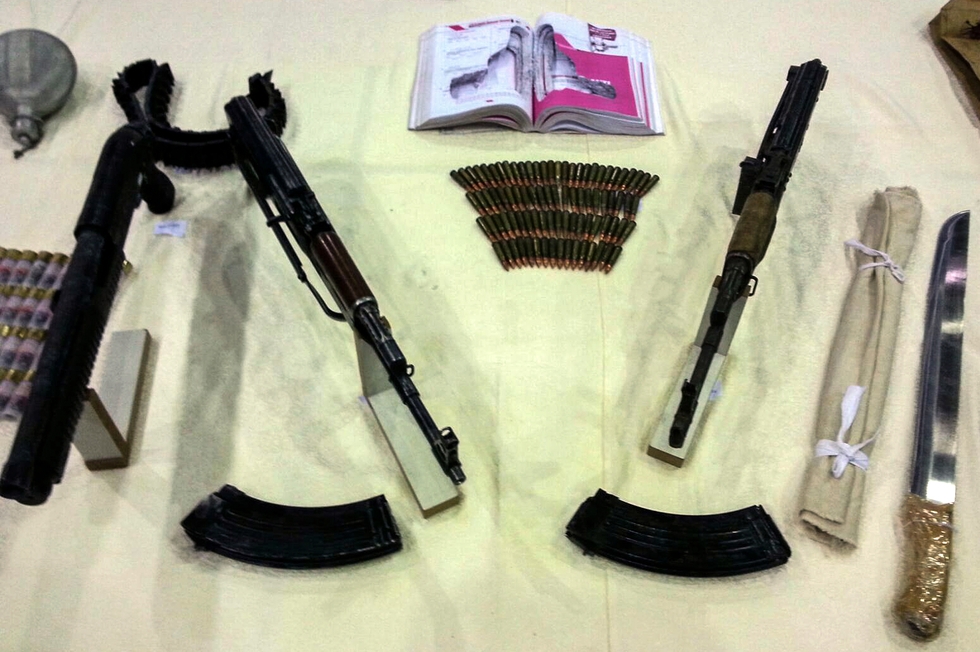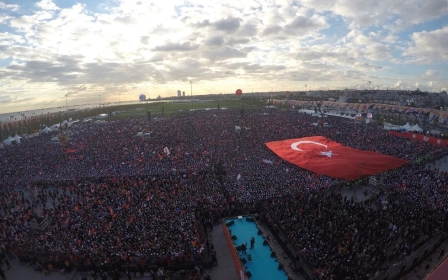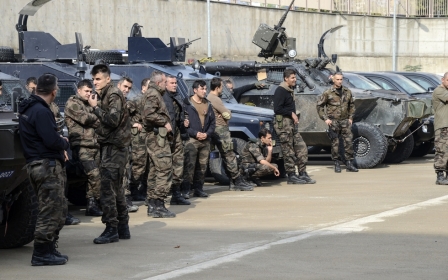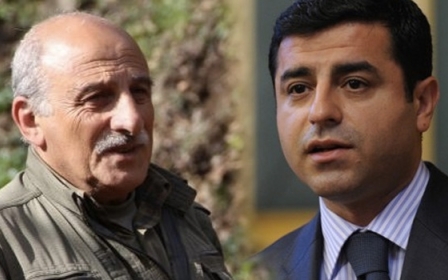Ankara bombings were ordered by IS to disrupt vote: Prosecutors

A sleeper cell acting on orders from the Islamic State (IS) militants carried out the massive bombings on a peace rally in Ankara this month to try to disrupt Turkey's election, prosecutors said on Wednesday.
The Ankara prosecutor's office said there was "strong evidence" that the cell was also behind other attacks in the country, including one on the border with Syria in July, and was planning more atrocities.
"The cell received permission from the terrorist group in Syria to attack all PPK (Kurdistan Workers’ Party) and anti-Daesh targets inside Turkey," it said in a statement, using the Arabic acronym for the IS group.
The 10 October attack targeted a peace rally staged by pro-Kurdish activists and leftists, and was the worst ever on Turkish soil, killing 102 people and raising tensions ahead of this Sunday's general election.
"Disrupting political stability by sabotaging the upcoming elections and complicating the formation of a government... that would emerge after the elections," was one of the motives, the prosecutor's statement said.
It said the sleeper cell was based in the southeastern province of Gaziantep which borders war-torn Syria.
Turkish officials had said previously the attack was carried out by two suicide bombers, including at least one Turk, and that the IS group was the number one suspect.
The prosecutors said information extracted from electronic devices had revealed "crucial information" about the organisation behind the carnage, including the flow of funds to cells in Turkey from bases in Syria.
Police raids
Police this week launched raids on suspected IS hideouts in several parts of the country, including an operation in the city of Diyarbakir which resulted in the death of two Turkish policemen and seven militants.
Media reports at the weekend said security forces were searching for a cell allegedly plotting a major attack, such as hijacking a plane or a vessel or carrying out suicide attacks in a crowded location.
Pressure has piled on President Recep Tayyip Erdogan since the Ankara bombing, with opposition figures blaming him for security lapses and accusing him of failing to crack down on IS militants.
One of the Ankara bombers was officially identified last week as Yunus Emre Alagoz, brother of the man suspected of carrying out the attack in Suruc on the Syrian border in July, which left 34 people dead and which prosecutors said was also the work of IS.
The Suruc bombing, which also targeted pro-Kurdish peace activists, triggered a wave of tit-for-tat violence between Turkish security forces and PKK militiamen that shattered a 2013 ceasefire.
Four people suspected of playing a role in the Ankara attacks have been detained.
Turkey has a complex strategy on the conflict in Syria, which has sent more than two million refugees fleeing across the border to take shelter in Turkish border camps and cities.
Ankara is vehemently opposed to President Bashar al-Assad and supports rebels fighting his rule.
Following the Suruc attack, Turkey launched air strikes against IS targets, but also against PKK hideouts in Iraq and Syrian Kurdish militias.
The PKK is classified as a terrorist organisation by Turkey, the EU, the US and a number of countries, but its linked group in Syria is not, and it receives American backing to fight IS.
Middle East Eye propose une couverture et une analyse indépendantes et incomparables du Moyen-Orient, de l’Afrique du Nord et d’autres régions du monde. Pour en savoir plus sur la reprise de ce contenu et les frais qui s’appliquent, veuillez remplir ce formulaire [en anglais]. Pour en savoir plus sur MEE, cliquez ici [en anglais].




